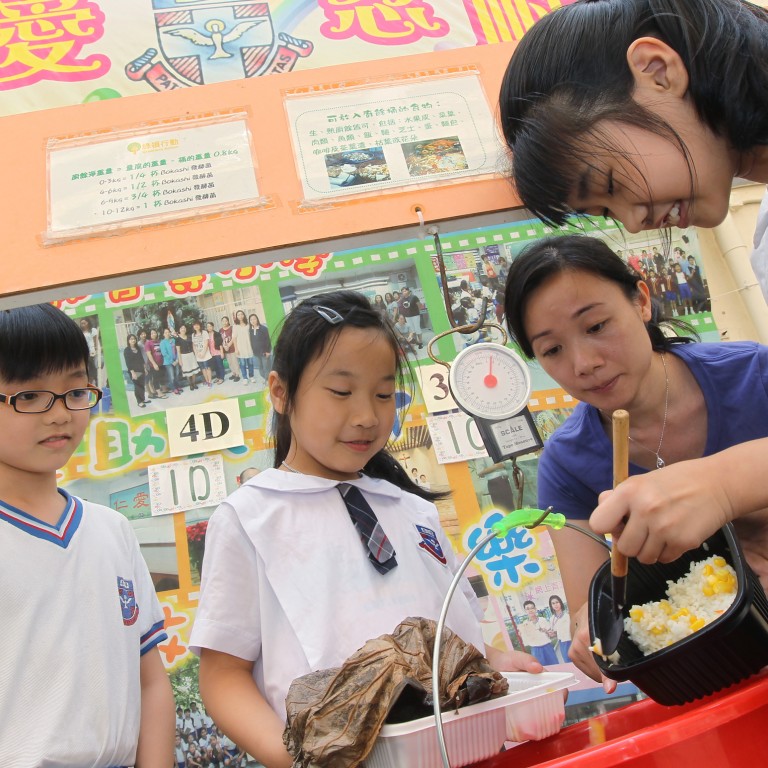
No wasters in Miss Lee’s class
Teacher Karen Lee Ka-wai has pioneered a food waste management programme run by primary school students
In recent months, a government-sponsored campaign has cropped up on bus shelters and billboards. On one poster, an alien-like creature tosses piles of food into the bin. “Don’t be a big waster. If you can’t finish your food, don’t waste it”, reads the slogan beneath.
“We’re teaching them by doing, not just by telling. We make it a habit,” says Karen Lee Ka-wai, a teacher at the Good Counsel Catholic Primary School in Cheung Shan Wan. She has pioneered a food waste management programme run by the students themselves. The school of 650 children is squashed between a highway and a hill. There is no playground and for lack of space, the children eat lunch at their desks. But the school maintains a fertile rooftop garden teeming with dill, rosemary, basil and mint and also produces kilograms of rich compost.
At lunch time each day, children who finish their full meal collect a stamp, which they can cash in at the end of the month for a gift. After everyone has finished, two green ambassadors carefully sort through whatever is left over, separating rice and solids from sauce, which cannot be composted.
In a sixth form classroom of 28 children, Thursday’s waste fills two small, takeaway boxes and a plastic bag stuffed with 28 banana skins. The two ambassadors skip down four flights of stairs to a waste station in the courtyard. The waste is weighed by two sash-wearing station monitors, both less than a metre high. They carefully record the figure in a notebook before emptying it into a medium-sized trolley bin. “Remember to wash your hands,” says Lee, as they skip back to class.
Inside the bin, food waste is fermented for two weeks using an enzyme-rich powder called Bokashi. It is then buried and becomes fertile soil. Each part of the multi-step process is handled entirely by the children, with great enthusiasm, says Lee.
It was difficult at the start. When Lee first introduced the new system, the children were reluctant to take part. “They thought it was too much hassle, and they couldn’t stand the smell,” says Lee. Slowly, they realised it wasn’t so bad. “Now they are happy, they feel like they are making a difference to the earth,” says Lee. The school has received media attention, which the kids love. They say it makes them realise they are doing something worthwhile and special, according to Lee.
From a young age, Lee’s mother impressed on her that she must not let food go to waste. In secondary school and later in her university years, she travelled in rural parts of Guangdong and Shanxi province. She was shocked to see people who did not have enough to eat. “I remember seeing families sit down to meals without any meat”, she says. These experiences reinforced her mother’s messages, and Lee wants to make sure the next generation of Hong Kong children is equally aware.
“Hong Kong is too rich, too materialistic. People don’t treasure what they have because it comes to them too easily. People are used to eating out and don’t care about wasting food”, says Lee. She has taught her students to ask about portion sizes, and think carefully before they order. And if there is food left over, they now know to take it home with them.
“Education shapes the next generations. If we do it well, these children will minimise and manage their waste automatically,” says Lee.

